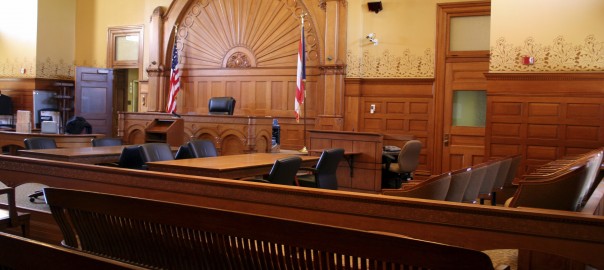Court procedures in the United States are widely perceived to be wasteful and subject to abuse. Pretrial discovery, in particular, is often marked by “fishing expeditions” and tactics intended to harass and pressure defendants into settlements, regardless of the merits. In a 2009 survey, 83% of American Bar Association members responded that litigation costs force the settlement of cases that should not be settled on their merits. It is also not unusual for plaintiffs’ attorneys to seek “discovery on discovery” and initiate disputes to try to turn a judge against the defendant and possibly draw a sanction or easy win for the plaintiff.
Modest changes to the Federal Rules of Civil Procedure that are likely to take effect late this year will help fix some of these problems. State courts in the United States have their own procedural rules, but many of them mirror the federal rules, so the federal rules amendments will ultimately impact state court litigation too.
Presently, civil defendants in the United States bear an asymmetrical proportion of the costs and burdens of discovery. A blue-ribbon advisory committee that develops amendments to the Federal Rules of Civil Procedure received comments and testimony from a wide variety of companies about the costs they bear in civil discovery.
- A healthcare products company estimated that in the last five years it had produced 47 million pages of documents in various litigations. The base cost of processing, hosting, and producing those documents – before any associated fees from lawyers reviewing them – was more than $20 million.
- A drug manufacturer noted that during a recent trial, only 0.04% of the documents that the company produced in discovery were later offered and admitted into evidence at trial.
- An automobile car manufacturer in a single-vehicle product liability action said that it was ordered to produce documents from 1,300 other lawsuits and 1,200 witness transcripts that the plaintiff alleged were related to the subject dispute. The carmaker estimated that the voluminous production request required more than 800 hours from its in-house legal staff and cost $2 million in outside counsel legal fees.
More than 2,300 written comments and testimonies from 120 witnesses were received. Many pointed out that skyrocketing litigation expenses have driven up the cost of doing business and are dragging down American productivity.
From this work, a culmination of a four-year effort by the Committee on Rules of Practice and Procedure of the Judicial Conference and its Civil Rules Advisory Committee, a “package” of amendments to the Federal Rules of Civil Procedure emerged and are now pending before the Supreme Court of the United States. If the amendments are adopted in whole or in part and submitted to Congress before May 1, 2015, they will take effect on December 1, 2015 if legislation is not adopted to reject, modify, or defer them.
Active Judicial Management, “Proportionality,” and “Reasonable Steps” to Preserve ESI
Among the highlights of the proposed amendments are changes meant to get cases moving more quickly and encourage earlier and more active management of discovery by judges. The proposed amendments also place a greater emphasis on “proportionality” and clarify preservation issues regarding electronically stored information (ESI), including pre-litigation failures to preserve.
The amended Rules shorten the time period for service of process and for judges to issue scheduling orders. A new provision added to the Rules allows discovery requests to be delivered to parties before the parties attend a required scheduling conference. There is also an emphasis on greater cooperation and active judicial guidance to discourage overly broad requests by plaintiffs’ counsel looking to drive up pretrial costs.
In addition, a “proportionality” standard has greater prominence in the amended Rules. The scope of discovery must not only be relevant to a party’s claim or defense, but also “proportional to the needs of the case considering the importance of the issues at stake in the action, the amount in controversy, the parties’ relative access to relevant information, the parties’ resources, the importance of discovery in resolving the issues, and whether the burden or expense of the proposed discovery outweighs its likely benefit.” Another proposed Rule change reminds judges that a protective order against undue burden or expense may include provisions for the “allocation of expenses.”
The amendments also address ESI, which has exploded in volume in recent years. Parties are required “to take reasonable steps to preserve [ESI]” in the anticipation or conduct of litigation—a standard recognizing that it is impractical to expect perfect retention and preservation in every case. Judges are instructed that, if a party is prejudiced by lost information, the court “may order measures no greater than necessary to cure the prejudice.” If a party intentionally deprives another party of information needed in the litigation, the court may give adverse inference instructions to the jury or dismiss the action or enter a default judgment. With these changes, the Rules may help to establish a more uniform standard for preserving electronic information across the federal courts.
Conclusion
The proposed amendments to the Federal Rules of Civil Procedure are an acknowledgement that the current process of pretrial discovery in federal courts needs to be improved. The amendments still need to clear the United States Supreme Court and Congress, but that is likely to happen this year. The language has been carefully crafted and enjoys strong support. The “black letter” in the new Rules will provide a modest help. If judges and litigants embrace the spirit of the changes, the changes could be even more dramatic.



